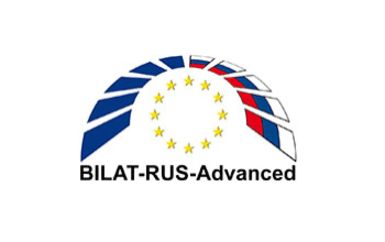Background
The overall strategic objective of the project BILAT-RUS-Advanced was to facilitate the science-, technology- and innovation cooperation between Russia and the EU. European competitiveness was supported through strategic partnerships with Russia on a bilateral level and on the basis of mutual interest and benefit.
Objectives
The major objectives of BILAT-RUS-Advanced were:
- to support the coordination of framework and instruments towards a sustainable STI dialogue between the EU Member States, the EU Commission and the Russian Federation.
- to endorse innovation and research cooperation by promoting and supporting cooperation opportunities.
- to pave the way for sustainable cooperation and for a sustainable support system for FP7 and Horizon 2020.
- to foster innovation and pave the way for sustainable EU-Russian cooperation towards the utilization of R&D results.
Activities
The project concept of BILAT-RUS-Advanced built on the following main pillars:
- Support of the political dialogue in close contact with main stakeholders in Russia and the EU;
- Promoting the Framework Programme (FP7 and the follow-up Horizon 2020 programme) to the best Russian scientists and organisations and increasing joint project activities;
- Assuring coherence and consistency across the priority fields of cooperation, with special regard to innovation;
- Optimisation of the framework for STI cooperation and horizontal issues;
- Planning, organisation and implementation of the EU-Russian Year of Science 2014. The timing of the Year of Science benefits from the conjunction of key related events in 2014, including: the launch of Horizon 2020; the renewal of the EU-Russia S&T Agreement; the start of the Russian State Programme for S&T; and the hosting by Russia of the Carnegie Meeting. This initiative also fits in the context of Russia's growing global presence, with its accession to the WTO, its chairmanship of the G20 in 2013 and of the G8 in 2014.
Participants
Germany:
- International Bureau of the Federal Ministry of Education and Research at the Project Management Agency c/o German Aerospace Center (DLR) (Coordinator)
- Zenit Centre for Innovation and Technology in NRW (Zentrum für Innovation und Technik in NRW)
Russia:
- State University Higher School of Economics (HSE)
- State Technological University ‘Moscow Institute of Steel and Alloys’ (MISIS)
- Centre for Study of International S&T and Educational Programmes (ICISTE)
- Institution of the Russian Academy of Sciences, A.N. Bach Institute of Biochemistry of RAS (INBI RAS)
- Foundation for Assistance to Small Innovative Enterprises (FASIE)
- National Nuclear Research University (MEPhI)
- Russian Technology Transfer Network (RTTN)
- Tomsk Polytechnic University (TPU)
- Voronezh State University (VSU)
Austria:
- Austrian Research Promotion Agency (Österreichische Forschungsförderungsgesellschaft) (FFG)
- Centre for Social Innovation (Zentrum für Soziale Innovation) (ZSI)
France:
- Inno TSD
- European Science Foundation (ESF)
Greece:
- Help-Forward (FORTH)








